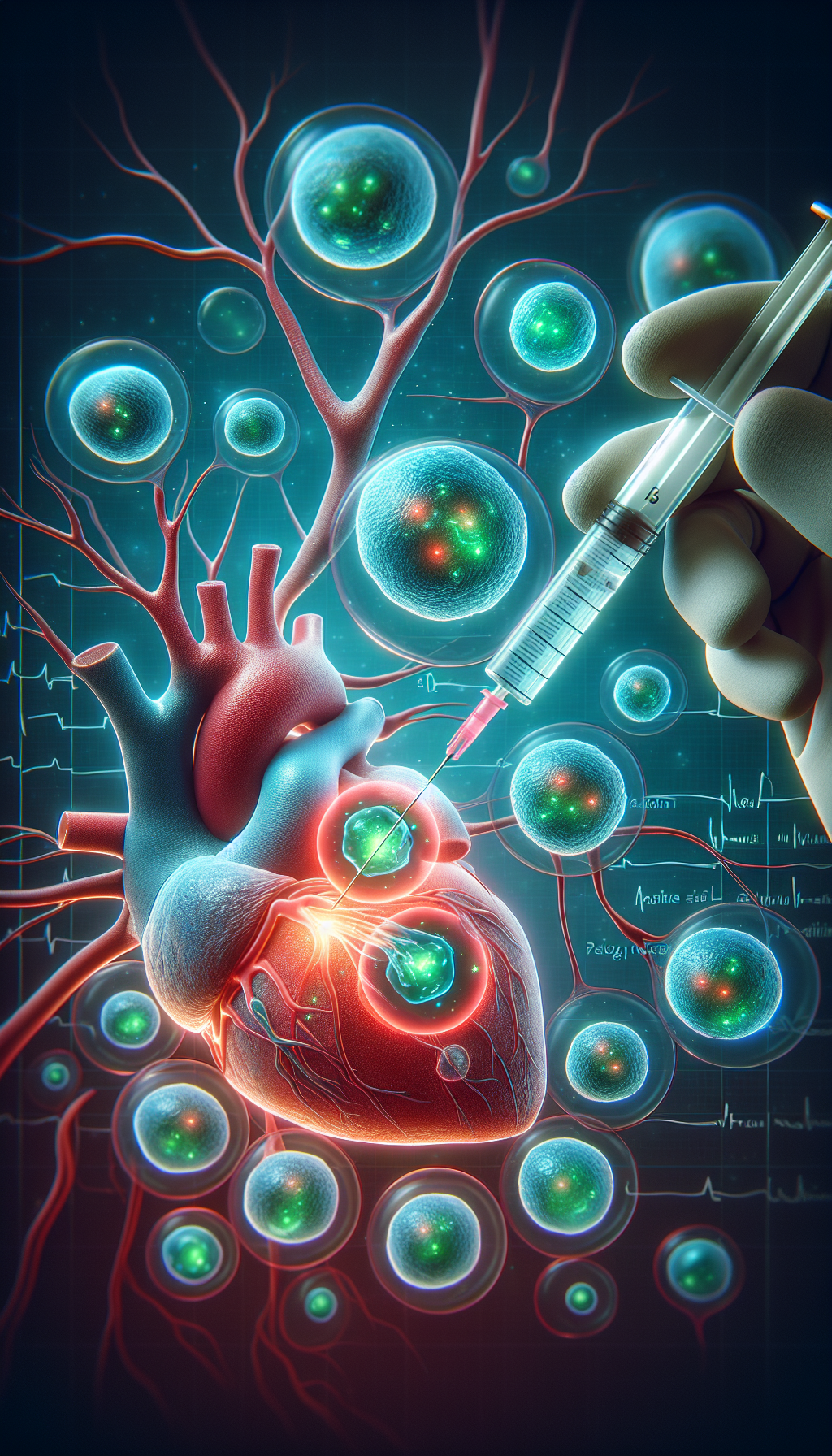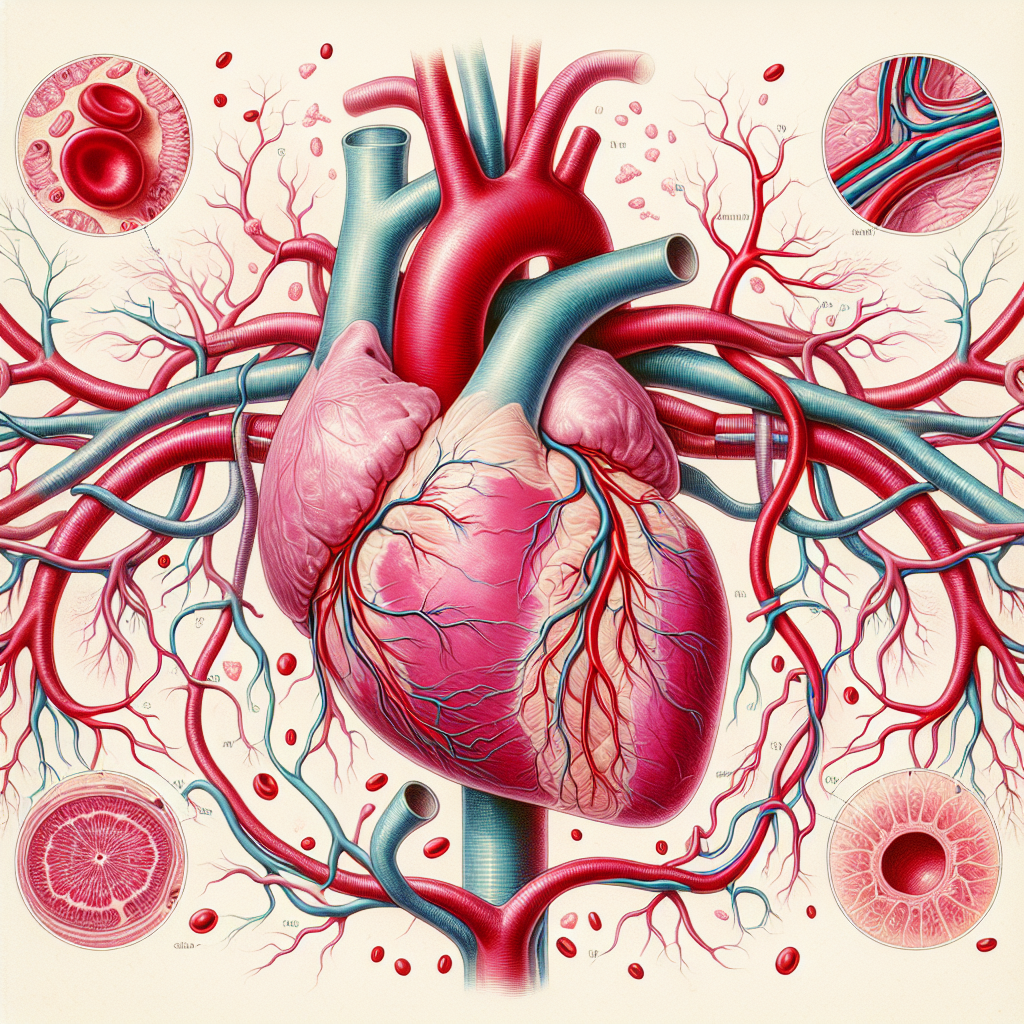Congestive heart failure (CHF) is a chronic progressive condition that affects the pumping power of your heart muscles. While often referred to simply as “heart failure,” CHF specifically refers to the stage in which fluid builds up around the heart and causes it to pump inefficiently. With advancements in medical research, there are now emerging therapies that offer hope to those affected by this condition. This article provides a comprehensive overview of the innovative treatments that are changing the landscape of CHF management.
Understanding Congestive Heart Failure
Before delving into the emerging therapies, it’s essential to understand what CHF is and how it impacts the body. CHF occurs when the heart can’t pump blood efficiently enough to meet the body’s needs. This inefficiency can lead to a buildup of fluid in the lungs and other parts of the body, such as the ankles and legs.
Symptoms of CHF can include shortness of breath, fatigue, swollen limbs, and rapid heartbeat, among others. The condition is often managed through a combination of lifestyle changes, medications, and in some cases, surgical procedures. However, as the condition progresses, these traditional treatments may become less effective.
Novel Pharmacological Advances
One of the most exciting developments in CHF treatment is the advent of new pharmacological options. These drugs aim to improve heart function and reduce hospitalizations for heart failure patients. Some of the newest medications on the market work by influencing different physiological pathways that affect heart function.
For instance, medications that enhance the natriuretic peptide system can lead to a reduction in heart failure symptoms and hospital readmissions. Also, drugs that inhibit the RAAS (renin-angiotensin-aldosterone system) have shown promise in reducing the progression of heart failure and improving patient outcomes.
Device-Based Therapies
Beyond medications, there are also device-based therapies that have shown significant benefits for CHF patients. Implantable devices such as left ventricular assist devices (LVADs) can help maintain the pumping ability of the heart. Moreover, the development of newer, less invasive devices that can monitor and adjust to the patient’s condition in real-time is on the horizon.
Cardiac resynchronization therapy (CRT) is another device-based treatment that has been beneficial for certain patients with CHF. CRT devices help to coordinate the timing of the heart’s contractions, improving its efficiency.
Gene and Cell Therapy
At the cutting edge of CHF treatment are gene and cell therapy approaches. These therapies aim to repair or replace the damaged heart tissue at the cellular or genetic level. For example, stem cell therapy involves transplanting stem cells into the damaged heart tissue in hopes of regenerating healthy tissue. While still in the early stages of clinical trials, these therapies offer a tantalizing glimpse into what might be possible in the future for CHF treatment.
Linking Heart Failure with Overall Cardiovascular Health
It’s crucial to understand that CHF is not an isolated condition; it’s intricately linked with overall cardiovascular health. Patients can often improve their heart failure symptoms and quality of life by adopting heart-healthy lifestyle changes. For more information on maintaining a healthy cardiovascular system, visit our page on Cardiovascular Health.
Improving Lifestyle for Heart Health
Lifestyle changes can have a significant impact on managing CHF. This includes dietary modifications, increased physical activity, and weight management. Resources like the article on Minimizing Heart Disease Risk with Plant-Based Diets offer valuable insights into how dietary choices can improve heart health.
Moreover, managing stress and ensuring adequate sleep are also crucial components of a heart-healthy lifestyle. Techniques such as mindfulness, yoga, and other relaxation practices can be beneficial. As highlighted in Can Mental Exercises Improve Cardiovascular Health?, engaging in mental exercises can also contribute to cardiovascular well-being.
The Role of Personalized Medicine
Personalized medicine is becoming increasingly important in the management of CHF. By tailoring treatment to the individual’s genetic makeup, lifestyle, and other health conditions, healthcare providers can significantly improve outcomes. For a deeper understanding of personalized medicine in cardiovascular care, read more about it here.
External Resources for Further Reading
To enhance your understanding of the latest in CHF treatment, consider exploring these niche resources:
- The American Heart Association’s detailed guide on heart failure and the latest research on treatment options.
- European Society of Cardiology provides extensive resources on heart failure management, including emerging therapies.
- The Heart Failure Society of America offers a comprehensive look at advanced heart failure treatments and patient care.
These resources offer in-depth information that can help patients and caregivers understand the complexities of CHF and the newest treatment options available.
Conclusion
The landscape of CHF treatment is rapidly evolving, with emerging therapies offering new hope to those living with this condition. From novel medications to cutting-edge gene and cell therapies, the future of CHF treatment looks bright. It’s important for patients to work closely with their healthcare providers to understand these new options and how they may benefit their individual case.
As research continues and these therapies become more refined and accessible, we may see a significant shift in how CHF is managed, leading to improved outcomes and quality of life for patients.



